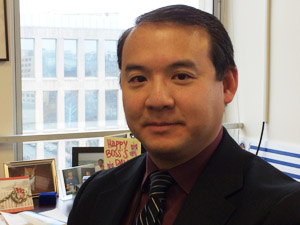OPM bets on blueprint for improving federal leaders
The Office of Personnel Management has rolled out "frameworks" for more consistent leadership training across the government. The guidance suggests timelines fo...
Federal employees are happier with work these days, but only four in 10 would say the same about their bosses, according to the most recent Federal Employee Viewpoint Survey. A closer look at the results revealed a staggering difference among agencies. While 75 percent of the Federal Trade Commission employees who took the survey gave their senior leaders positive marks, just 38 percent of Homeland Security Department employees answered the same.
One reason for the difference might be the preparation that agencies give their managers and leaders. It varies wildly across the government, with each agency deciding what to offer its managers based on the agency’s budget, preferences or work culture.
While agencies should have discretion to personalize their training, “sometimes these paths are not as strategic as would be ideal,” said Steve Shih, the Office of Personnel Management’s deputy associate director for senior executive services and performance management, in an interview with Federal News Radio.

Shih’s department has rolled out what he calls a “blueprint” for more consistent leadership training across the government. OPM worked with chief learning officers to come up with a recommended list of competencies that all new, experienced and senior managers should have in their toolboxes. If agencies take the new tools to heart, they could keep talented employees who would otherwise leave and be better prepared to make the case that employee development and training — often the first things to go in a budget crunch — are worthwhile investments, Shih said.
“We know development is the key to increasing engagement of employees and ensuring that they have a path to succession and advancement, which is very important to ensuring that we’re able to recruit and retain top talent,” he said.
The “frameworks” suggest timelines for teaching both substance and soft skills to managers. For example, agencies should help new managers develop political savvy within their first year on the job, according to the guidance. More experienced managers should know how to coach others and respond to feedback. Training for senior managers should include segments on entrepreneurship and vision. All managers, regardless of seniority, must understand personnel policies, laws and performance management processes.
To develop the list of soft skills, OPM and the Chief Learning Officers Council looked at current research on leadership training and at what agencies now demand of their supervisors, managers and executives. They also worked to ensure the frameworks would help managers gain the qualifications required to enter the Senior Executive Service, the government’s corps of top career leaders, Shih said.
The frameworks are intended to be used as part of a yearlong effort. It would ideally begin with an honest assessment, through employee reviews and other criteria, of the manager’s weaknesses vis à vis the listed competencies. The manager in question would work with a supervisor to draft a plan for improvement that incorporated the type of training suggested by OPM. The agency is betting that agencies will take to the idea after they do some math.
“OPM is able to bring efficiencies, cost savings, economies of scale and share resources and training products to all agencies, often cost-free because it has been developed by one agency and then shared,” Shih said.
OPM has released a companion “logic” tool to help agencies evaluate the costs of the training. The model offers agencies a way to evaluate whether their investment pays off, in the form of short-term (Is the manager more confident and committed to their work?) and long-term results (Is there less turnover in the manager’s office?).
It “will help bolster the business case for continuing to investing in our personnel and their learning and development,” Shih said.
OPM has received positive initial feedback from agencies, he said, although it’s too early to tell whether agencies will adopt the frameworks.
Copyright © 2024 Federal News Network. All rights reserved. This website is not intended for users located within the European Economic Area.


